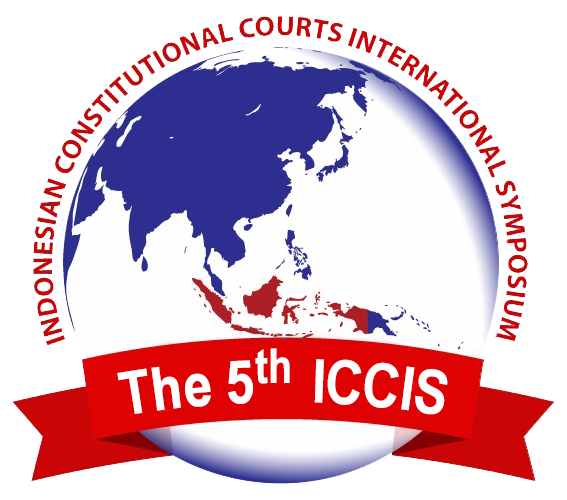
The Constitutional Court of the Republic of Indonesia looks forward to welcoming you to the 5th Indonesian Constitutional Court International Symposium (ICCIS), which will take place in Bali, on October 5-7, 2022. This will be the fifth annual symposium of the Constitutional Court of the Republic of Indonesia, following the success of our previous international symposia in Surakarta in 2017, Yogyakarta in 2018, Bali in 2019, and Bandung in 2021.
Due to the COVID-19 pandemic, the 5th ICCIS will be held both online and in-person at the venue. The ICCIS is an annual global academic forum for the discussion of ideas in constitutional law. This year’s focus is on issues concerning Constitutional Court and conflict resolution. Selected articles from the 5th ICCIS (subject to peer review decision) will be published by the Constitutional Court’s academic journal, Constitutional Review, managed by our Center for Research and Case Analysis and Library Management.
The theme of the 5th Indonesian Constitutional Court International Symposium (ICCIS) is “constitutional court and conflict resolution”. This theme will enable symposium participants to discuss various perspectives on how to strengthen the role of the Constitutional Court in conflict resolution.
1. Constitutional Interpretation relating to Peace and Reconciliation
In interpreting the constitution, the constitutional court justices can bring a positive contribution by preventing the cause of conflict. Through the constitutional interpretation, the constitutional justices can thus contribute to reconciling conflicts by favouring solutions that remain within the framework of the constitutional order. However, it may also happen that a constitutional interpretation of the constitutional court is itself challenged and provokes violent reactions.
2. The Role of Constitutional Courts in Adjudicating Cases relating to Social and Political Conflicts
Constitutional courts basically have functions to settle social or political conflicts between the parties, and the courts' final decisions resolve conflict with binding force. Therefore, the very existence of the courts and their function to bring final and binding decisions contributes to social and political peace.
3. The protection of Human Rights and Democracy by the Constitutional Courts to Settle Conflicts
The protection of human rights is a precondition to the settlement of conflicts and peace. Therefore, as key actors in promoting and protecting human rights, constitutional courts directly contribute to peace.
In addition, the protection of democratic principles by the constitutional court also contributes to a peaceful transition of government following general elections. The Constitutional Courts can ensure that the principles of free and fair elections are implemented and that state actors respect the constitution.
4. Constitutional Courts as Mediators in Armed Conflict and Civil-Military Relations
While the role of constitutional courts as mediators in armed conflict and civil-military relations is undoubtedly important, there are also limits to what they can achieve. As opposed to political organs, constitutional courts cannot act upon their own initiative; they are limited by authorities. Many constitutional courts may be aware that they have no jurisdiction to settle the armed conflict and civil-military relations cases.
The ICCIS is expected to generate many ideas from the different perspectives of constitutional and comparative law, as well as to offer new perspectives on developments in subjects related to the symposium’s theme.
The Constitutional Court of the Republic of Indonesia gives opportunities to legal scholars, researchers, lawyers and practitioners from all over the world to participate in the ICCIS. All participants are encouraged to submit a paper that align with the theme of this year’s symposium